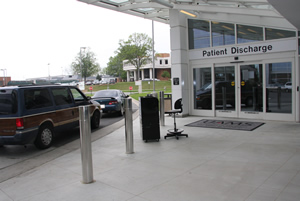 “As with any illness, a brief setback may occur once the support of the hospital is removed.”
“As with any illness, a brief setback may occur once the support of the hospital is removed.”When a loved one has surgery, you bring him home with a list of after-care instructions: keep the arm elevated; apply ice every hour. Whenever I brought a teen home from the behavioral health hospital, I found myself asking, “What do I do now?” My teen was usually shaky at best, sometimes still on the verge of being suicidal. As with any illness, a brief setback may occur once the support of the hospital is removed. The first few days will probably be the hardest. Many teens find it jolting to leave the calm consistency of the hospital. Keep the following in mind to ease the re-entry:
- Don’t plan any kind of a celebration. Your teen will not be up for it.
- Don’t invite anybody over. If your teen wants to see a friend, that’s okay, but keep well-meaning relatives away for these first few days.
- Make their favorite meal.
- Try to establish set meal times and stick to them. Your teen will appreciate the predictability.
- Try to structure the days as much as possible, mimicking the hospital’s use of repetition to de-stress your teen’s brain. For example: eat; go for a walk or a short outing; do homework; rest. Repeat. I know this may be a tall order, but the more you can structure the day, the easier the transition will be and the quicker the recovery will be.
- If there is tension in your house that you cannot eliminate, a grandparent or other relative may be willing to let your teen come and stay for a while.
- Secure the environment, even if your teen has not been suicidal. Put away knives and lock up medicines. Guns of any kind have no place in your home anymore. Taking these measures will give everybody, including him, peace of mind.
- Above all, stay strong and know that you will get through this.
Tags: Caregivers, Family Issues, Hospitalization